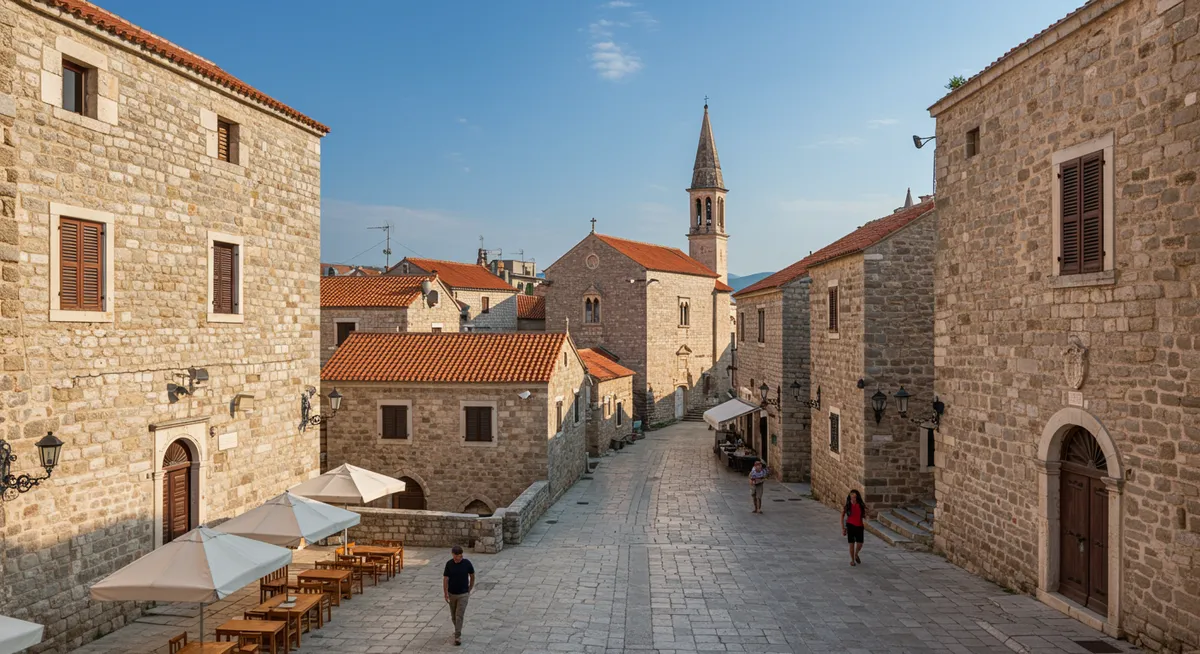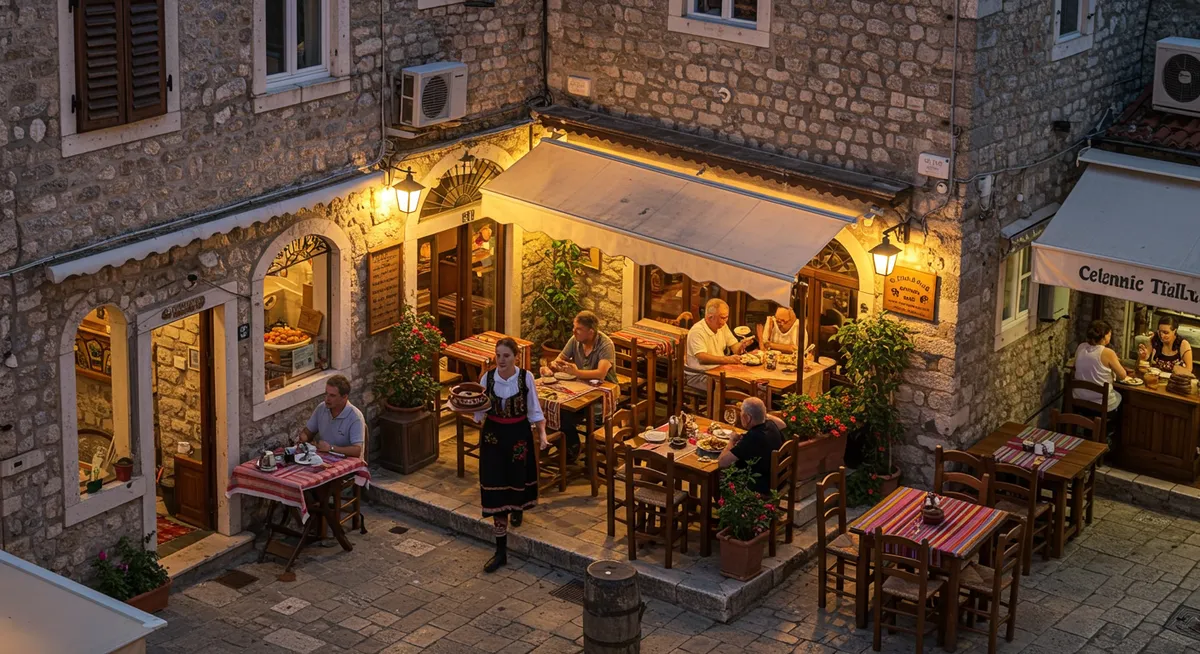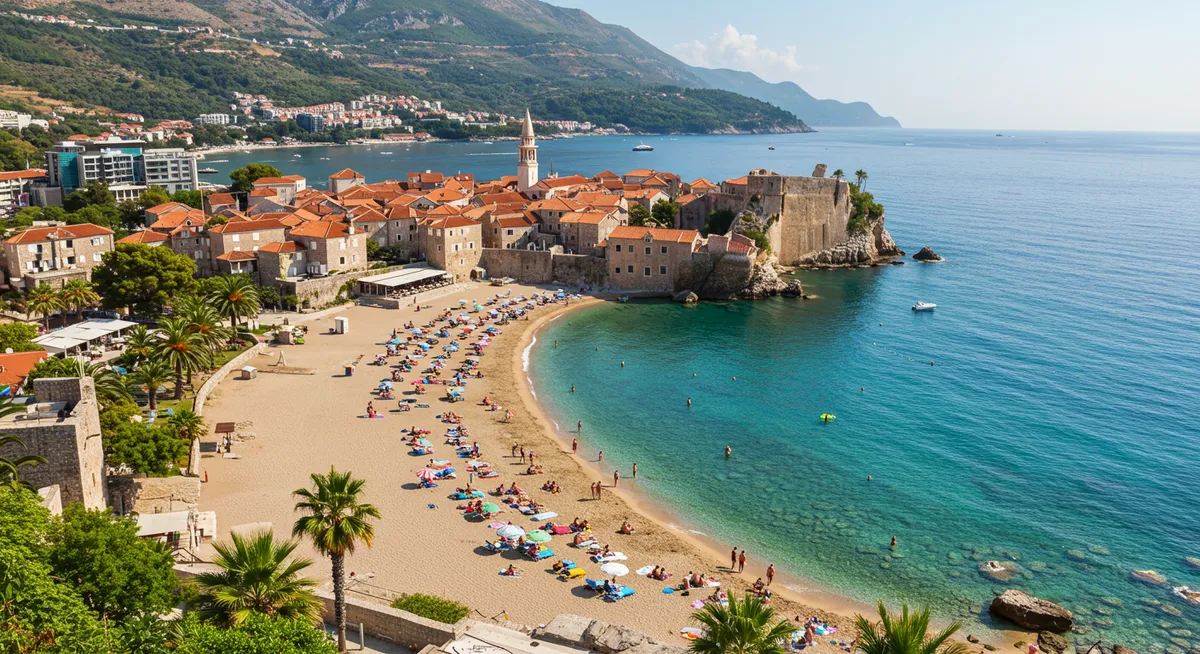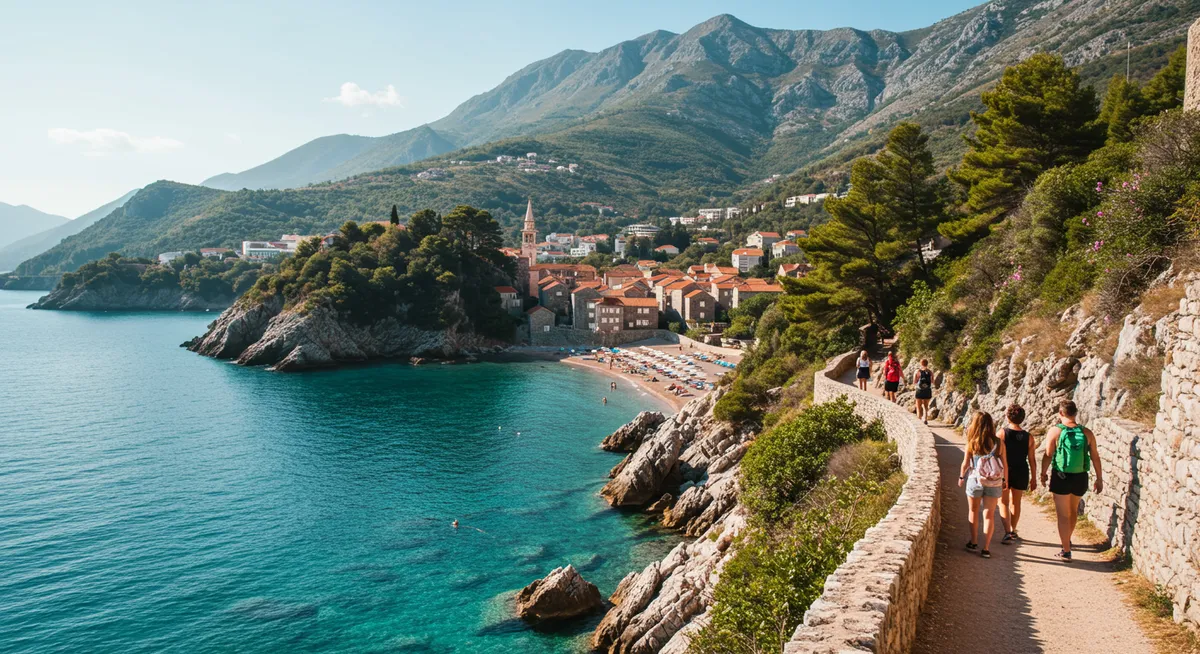
Explore Budva's Top Historical Sites
Want to plan a trip based on this article? Chat with our AI travel assistant!
Chat with AI AssistantCategory: top-historical-sites-to-explore-in-budva
About the Author
Travel Expert & Content Creator
Our travel experts have visited hundreds of destinations worldwide and are passionate about sharing authentic, practical travel advice. With years of experience in travel planning and content creation, we help travelers make informed decisions and create unforgettable journeys.
Editorial Standards: All articles are reviewed for accuracy and quality before publication. Learn more about our editorial process.
Written by Editor | Last updated: 9/9/2025
Unearthing the Past: Your Guide to Budva's Historical Gems
Having spent countless hours wandering the cobblestone streets and ancient fortresses of Montenegro, I can confidently say that Budva stands out as a living testament to history. This guide will walk you through the top historical sites to explore in Budva, revealing the layered narratives of empires, battles, and everyday life that shaped this remarkable coastal city. From its well-preserved Old Town to hidden Roman ruins, Budva offers a fascinating journey back in time for every history enthusiast. For a broader overview of activities, explore more things to do in Budva during your visit.
Budva Old Town (Stari Grad) – The Heart of History
The undisputed centerpiece when considering the top historical sites to explore in Budva is undoubtedly its Old Town, or Stari Grad. Enclosed within formidable medieval walls, this labyrinthine district feels like stepping into a different era. Wander through narrow, winding alleyways that open into charming piazzas, discovering ancient churches like St. Ivan's with its iconic bell tower, and the Holy Trinity Church. My personal tip: climb the walls for panoramic views of the Adriatic Sea and the terracotta rooftops. For more local insights, consider reading about things to do in Budva Old Town at night, as its atmosphere transforms beautifully after dusk. This area truly embodies Budva's rich heritage.
Budva Citadel – A Fortress of Tales
Perched majestically at the southwestern tip of the Old Town, the Budva Citadel offers more than just stunning vistas; it's a historical stronghold filled with intriguing tales. Originally a defensive fortress, it provides a fascinating glimpse into Budva's military past and its resilience against various sieges. Inside, you'll find a captivating library filled with rare maritime books, a small museum showcasing archaeological finds, and an open-air theatre that hosts events during summer. I highly recommend spending time here, exploring every nook and cranny. The views of Sveti Nikola Island and the sprawling coastline from the Citadel's ramparts are simply breathtaking, making it a pivotal part of Budva's ancient narrative.
Mogren Beach Paths & Archaeological Sites – Beyond the Sand
While Mogren Beach is celebrated for its golden sands, the coastal path leading to it from the Old Town is equally significant for those exploring Budva's historical sites. This scenic walkway, carved into the cliffs, reveals remnants of old fortifications and offers striking views. Look closely, and you might spot hidden caves or ancient stone markings along the route, hinting at an even deeper past. Near the iconic "Dancer of Budva" statue, archaeological excavations have uncovered traces of early settlements. It’s a wonderful example of how Budva seamlessly blends natural beauty with its rich historical tapestry. My recent walk highlighted unexpected pathways that diverge, urging further exploration. If sunbathing is also on your itinerary, consider these best beaches to visit in Budva, Montenegro.
Podmaine Monastery – Spiritual Heritage
Venturing slightly beyond the bustling city center, the serene Podmaine Monastery stands as a significant spiritual and historical landmark in Budva. Dating back to the 15th century, this Orthodox monastery complex offers a tranquil escape and a profound connection to Montenegro's religious heritage. It was historically significant as a literary center and a safe haven for Montenegrin rulers. Visitors can admire well-preserved frescoes inside its churches, depicting biblical scenes and saints. I found the peaceful ambiance here particularly moving, providing a stark contrast to the lively coast. Exploring such sites enriches your understanding of Budva's enduring cultural and spiritual depth, truly making it one of Budva's most treasured historical sites.
Roman Necropolis and Villa Urbana – Echoes of Antiquity
For those fascinated by even deeper historical layers, the Roman Necropolis and Villa Urbana site offers compelling evidence of Budva's ancient past. Located near the modern Post Office, these archaeological remains date back to the 2nd and 3rd centuries AD, showcasing Budva’s significance during the Roman era. The necropolis reveals intricate burial practices, while the villa urbana hints at a sophisticated urban settlement. While not as visually grand as the Old Town, this site provides crucial insights into the daily lives and architectural styles of Budva’s earliest inhabitants. During my visit, I appreciated how clearly the interpretive signs explained the site’s profound historical importance. It highlights Budva’s long and continuous human settlement, making it a key destination among Budva's historical sites.
Frequently Asked Questions
How much time should I allocate for Budva's historical sites?
Are there guided tours available for Budva's historical sites?
Can I combine historical site visits with other activities easily?
Exploring Budva's historical sites offers an immersive journey through millennia of rich heritage, from ancient Illyrian roots to Venetian influences and beyond. Whether you're captivated by the medieval charm of the Old Town, the strategic grandeur of the Citadel, or the spiritual tranquility of Podmaine Monastery, Budva reveals its past gracefully. Each stone, wall, and archaeological find tells a piece of its enduring story. To truly appreciate this Montenegrin gem, dedicate time to wander, absorb, and discover. For more travel tips and destination guides, explore the broader Tourspilot blog.
Content Quality Assurance
This article has been thoroughly researched and fact-checked by our editorial team. We maintain high standards for accuracy and originality in all our content.
Related Articles

Authentic Restaurants in Budva Old Town
Discover authentic local restaurants in Budva Old Town. Savor traditional Montenegrin cuisine, fresh seafood, and charming dining spots for a memorable culinary journey.

Top Beaches in Budva, Montenegro: Your Ultimate Guide
Discover the best beaches to visit in Budva, Montenegro, for every type of traveler. From lively shores to hidden coves, find your perfect sun-soaked escape.

Best Day Trips from Budva Without a Car
Discover the best day trips from Budva without a car in Montenegro for 2024. Explore Sveti Stefan, Kotor, Perast, and more with easy public transport options.